The opinions and views expressed in this article are those of the author and do not reflect the opinion of Byte or Byte’s editorial board.
The Star Wars sequel trilogy is a major point of contention for many people myself included. I can go on and on about the many problems littered throughout: abysmal world building, clumsy storylines, the imaginary tug-of-war between J.J. Abrams and Rian Johnson, etc. Thankfully, this article will not dwell on those things.
Instead I am going to center my attention on the focal point of this trilogy—Rey Skywalker* (Daisy Ridley). It is quite the understatement to say that Rey’s arc throughout the trilogy has been anything but messy, with writers not even knowing her family’s origins. (The Rise of Skywalker gave us that answer, and trust me, I will open that Pandora’s Box later on). While I have great issues with how Rey’s family was handled, I find her overall arc to be fascinating, especially when I consider the elements of it that actually work.
*And yes, her last name is Skywalker. She adopted it. It is her official name given by Lucasfilm, and there is nothing we can do about it. Saying “Rey Palpatine” over and over again on social media will not change that.
One Flew Over the Jakku’s Nest
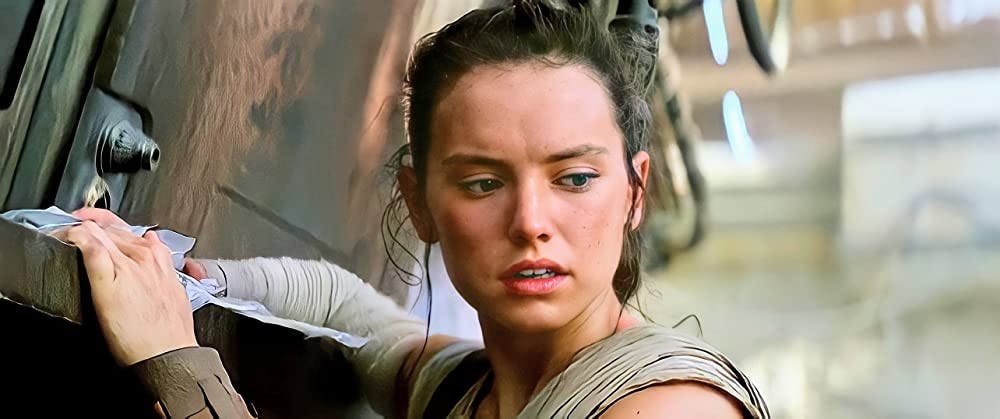
Image by IMDb
Rey’s journey begins in 2015’s The Force Awakens, written by Lawrence Kasdan, J.J. Abrams, and Michael Arndt. It was directed by Abrams as well.
The character is introduced as an isolated scavenger who lives on the planet Jakku, thirty years after the events of Return of the Jedi. Rey is diligent and resourceful, scrounging a meager living while desperately hoping her parents will come back to find her. That all changes when astromech droid BB-8 and former stormtrooper FN-2187 / “Finn” (John Boyega) come into her life, and she is soon whisked into an adventure involving a war between the First Order and the Resistance. Said war involves the hunt for Jedi Master Luke Skywalker (Mark Hamill), who has disappeared and might be the hero that the galaxy needs.
Frankly, I liked Rey in this film. Ridley did such a great job bringing this character to life, giving her strong determination and a believable sense of wonder. While there are aspects of her arc that are similar to Luke’s in A New Hope—namely being a Force-sensitive person living on a desert planet who has a larger destiny—there is enough substance for her to stand on her own. This character detail takes the form of her missing family, which makes for a compelling identity crisis for Rey. Throughout the film, she struggles with feelings of loneliness, sensing the lack of belonging that she seeks. Fortunately, her arc provides a satisfying conclusion: she finds a surrogate family in Finn, BB-8, Han Solo, and Chewbacca—despite Han’s death at the hands of his son, Kylo Ren.
That being said, if there is one issue with Rey’s arc it’s the mystery of her parentage. Abrams has a history with “mystery boxes,” which are essentially plot devices kept intentionally vague to maintain audience interest. While the mystery with Rey works here, The Force Awakens is only the start of the trilogy. After all, it proves problematic in the future.
Always Ahch-To There Are
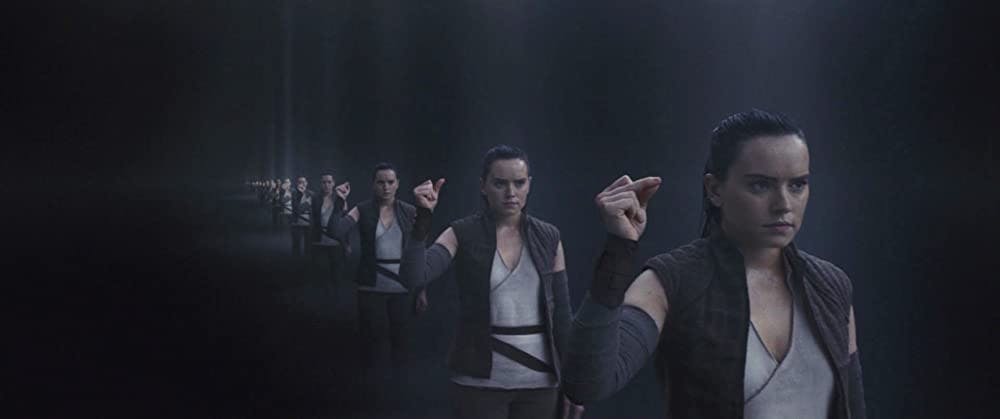
Image by IMDb
Rey’s journey continues in 2017’s The Last Jedi, written and directed by Rian Johnson.
Set immediately after the events of The Force Awakens, Rey finds herself on the planet Ahch-To, where she successfully found Luke. However, things aren’t what they seem as the Jedi Master has cut himself off from the Force and is unwilling to train Rey to become a Jedi herself. Amidst this obstacle, Rey becomes involved in a psychic bond with Kylo—whom she decides to help turn back to the light side—and comes to terms with the fact that her parents were “nobodies” who deserted her on Jakku.
I was expecting the film to give us the answer of her parentage and I came out disappointed. (I vividly remember becoming frustrated when Rey merely saw herself in those reflections in the cave scene). The mystery box that Abrams set up was effectively derailed by Johnson…or so I thought. In the years since first watching The Last Jedi, I’ve grown to appreciate what the director attempted to do with Rey’s character. Rather than tying her to the mystery of her parents—which had spawned numerous fan theories—Johnson decided to take Rey in a direction that gave her agency. Yes her parents were basically made into selfish jerks, but it was an interesting concept to explore. It forced Rey to come to terms with a terrible truth, and illustrated that she was still capable of achieving greatness despite what happened to her.
It's a shame that the next film pulled a Willy Wonka and said, “Strike that, reverse it.”
The Unmitigated Exegol

Image by IMDb
Rey’s journey ends with 2019’s The Rise of Skywalker, written by Abrams and Chris Terrio with Abrams also returning to direct.
Set one year after the events of The Last Jedi, Rey is now a Jedi apprentice trained by General Organa. With the reveal that Emperor Palpatine—the major antagonist behind both the prequel and original trilogies—has been resurrected and seeks to take over the galaxy, Rey and her friends go out to stop him. Along the way they must also contend with Kylo, who is now the Supreme Leader of the First Order, and has sided with Palpatine. Rey eventually learns that she is the Emperor’s granddaughter and goes on to confront—and successfully defeat—her relative at his fortress on the planet Exegol. With Palpatine gone Rey renounces her family name and becomes an adopted Skywalker.
Now here is where things get completely bonkers. When I first heard Kylo tell Rey that Palpatine was her grandfather, my jaw dropped—and not in a good way. I could not believe what I had just witnessed. While that might sound hyperbolic, it was a genuine feeling. Mind you, Palpatine was the evilest character in the entire saga. Picturing him procreating with someone else made my skin crawl, so the idea of Rey being related to him was insane to me. (I would go into more detail about the fact that Palpatine was a clone, but that’s a whole other can of worms). If anything, it felt like Abrams saw what Johnson did in the last film, said “Uh…. that’s not what I had in mind,” and decided to give Rey a famous relative. (The fact that Ridley herself said that her lineage to Palpatine wasn’t even planned ahead of time just makes things worse).
Then there is the famous, or shall I say infamous, Rey Skywalker scene. While it has caused quite the uproar, I found it to be quite impactful. For Rey to denounce her lineage to Palpatine and adopt the Skywalker name is a great character moment, and completely in line with her overall arc throughout the trilogy of finding her true family. (It also doesn’t go against Rey having agency, as she willingly chose to do these things).
Rage Against the Tatooine
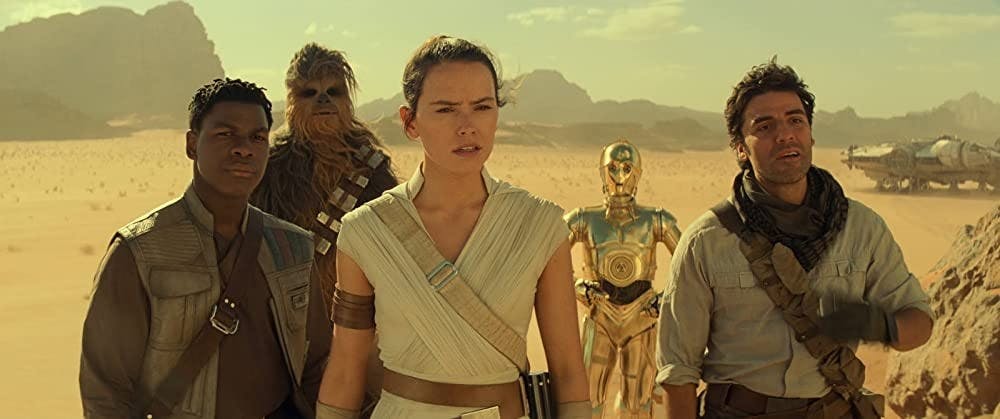
Image by IMDb
Despite the mess that was The Rise of Skywalker, there is a cause for hope. The post-sequel trilogy era has yet to be explored by Lucasfilm, so Rey’s future is ripe with potential. Stories involving her rebuilding the Jedi Order will no doubt be amazing to tell, if told right, in which she takes what she learned from both Luke and Leia to train the next generation of Jedi. Not only that, but her experiences with her own family can be compelling to examine: She might be a Skywalker now, but what if that gave her doubts? Does she feel worthy enough to be a member of this family? How would her friends perceive her?
Well, only time will tell what happens next with Rey Skywalker. *
*Once again, that is her name now, not Rey Palpatine. Nothing we can do about it.
Featured Image: IMDb
Images: IMDb, IMDb, IMDb, IMDb
Sources: IMDb, IMDb, IMDb, StarWars, IMDb, IMDb, IMDb, IMDb, IMDb, IMDb, IMDb, CheetSheet, Nerdist, YouTube, Indiewire, YouTube, DigitalSpy,
Contact Anthony Herring at ajherring@bsu.edu.

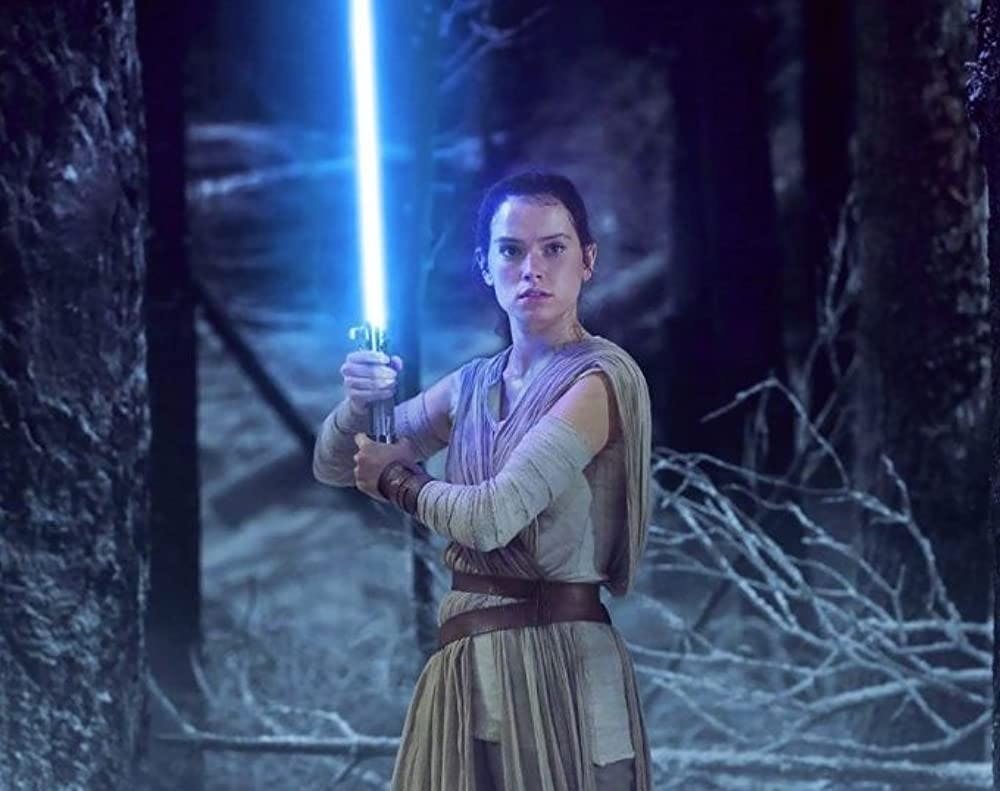
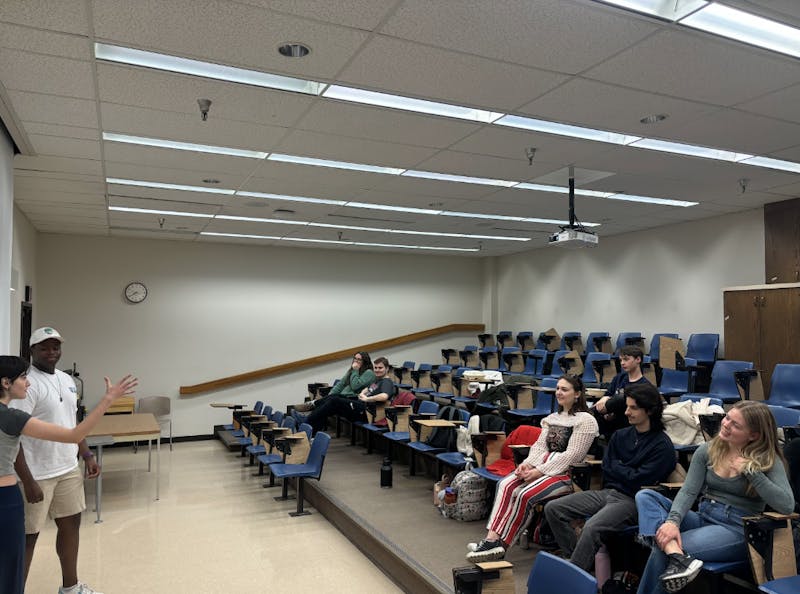

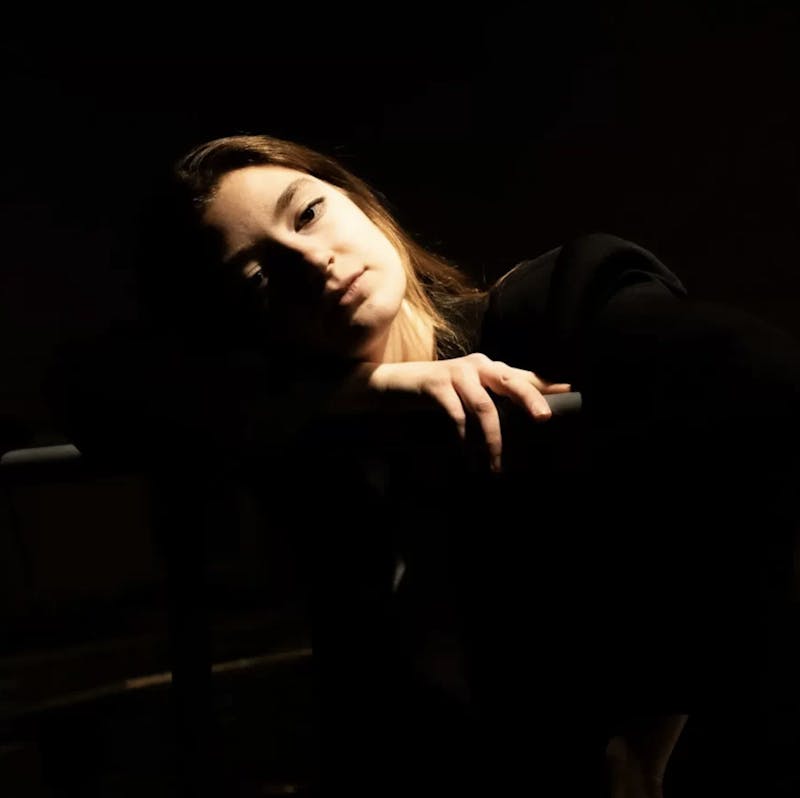
The Daily News welcomes thoughtful discussion on all of our stories, but please keep comments civil and on-topic. Read our full guidelines here.